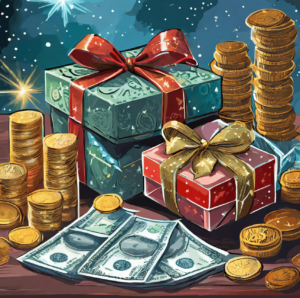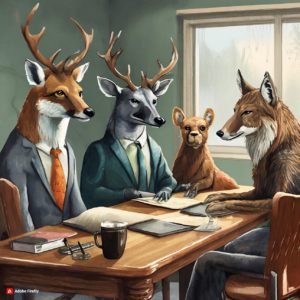Happy Tuesday. Before we kick off your weekly ClimateTech fix… we want to help personalise your experience. To tailor future content so you squeeze all the value out of this weekly newsletter take two seconds to answer the question below.
In today’s edition:
⚡️ ExxonMobil aim to produce lithium for 1 million EVs
🚜 New initiative tracks 100k+ cows in Brazil
🌳 New law to tackle €15 billion from environmental crimes in the EU
🔋 ENERGY (1-Minute Read)
ExxonMobil is charging into the future with lithium leadership
What happened: ExxonMobil Corp. plans to become one of the biggest suppliers of lithium for electric vehicles, marking the oil giant’s first major foray outside of fossil fuels in decades.
Details: Exxon will extract the metal from underground saltwater reservoirs in the Smackover Formation in southern Arkansas, employing a novel method called direct lithium extraction (DLE), which is not currently deployed at scale. Exxon aims to produce its first lithium by 2027 and ramp up output to the equivalent of 1 million electric vehicles, making it one of the US’s largest suppliers.
DLE? The DLE process will be able to extract up to 90% of the lithium resource, which compares to roughly 50% recovered through the traditional process of using enormous evaporation surface ponds.
Exxon’s case:
Environmental: DLE supposedly will lead to lower emissions and a smaller land footprint than current lithium extraction methods
Securing Domestic supply: Supplying a domestic resource which is currently heavily reliant on China refining between 60-70% of all Lithium globally
Capitalising on Customer-Centricity: Exxon hold longstanding relationships with major carmakers, which they see as a differentiator over other Lithium miners
(Full story here).
🚜 AGRITECH (1-Minute Read)
Cow tracking helps Brazil’s beef with deforestation
What happened: A group of Brazilian companies have unveiled a Certification of Origin and Traceability Implementation Initiative (COTI) to track and certify cows in their supply chains while reassuring consumers that the associated cattle products are unrelated to deforestation.
Details: Cattle pasture is a common initial use for deforested areas, posing a threat to Brazil’s climate commitments and exports of cattle products. COTI places tracking devices on individual cattle and provides information about the produce created from each cow, allowing consumers to make informed choices when purchasing. Since the COTI project began in the second half of this year, 113,000 cows have been tracked, with a target of 200,000 cows by the beginning of 2024.
Challenges remain: None of Brazil’s major meat processors are participating in the initiative, and even if it reaches the target of 200,000 cows tracked by 2024, this still represents a minority of Brazil’s 234 million-strong cattle herd. However, it is a step in the right direction to improve the traceability of Brazilian cattle products, especially as new EU rules obliging companies to prove their goods have not been produced on recently deforested land are due to come into force at the end of 2024.
(Full story here).
🐘 Nature (1-Minute Read)
Green justice as EU seeks to outlaw environmental bandits
What happened: The European Union (EU) has become the first international body to criminalise extensive environmental damage, with lawmakers updating the bloc’s laws to impose stricter penalties for serious ecosystem destruction, including habitat loss and illegal logging.
Details: The law, set to be formally passed in the spring, aims to criminalise actions causing widespread, substantial, irreversible, or long-lasting damage to large ecosystems, habitats, air, soil, and water quality. The law specifies activities such as water abstraction, pollution, invasive species introduction, and ozone destruction. New penalties, including prison sentences, will also be introduced, and member states will choose fines based on turnover or fixed amounts (up to €40 million).
Importance: The EU commissioner for environment, oceans, and fisheries stated that environmental crimes were serious, lucrative and on the rise. With the revenue from the illegal waste market ranging between €4 and €15bn, these new laws are progressing decisive actions against criminals by making them properly accountable for actions causing ecological harm.
(Full story here).
💭 Little Bytes (1-Minute Read)
💬 Quote: “We need to diversify… We need to find other solutions for Africa.” Audrey-Cynthia Yamadjako, Principle Climate Officer, African Development Bank.
📊 Stat: Less than 10% of plastic waste is recycled, while at least 14 million tonnes end up in oceans every year — International Union for Conservation of Nature.
📺️ Watch: Indonesia unveils giant floating solar panel
🛗 Snippets for your lift conversations (1-Minute Read)
China and the U.S. have agreed to back a global target to triple global renewable energy capacity by 2030, the two superpowers said in a statement on Wednesday, two weeks before nearly 200 countries meet for the COP28 climate conference (Full story here).
This week, E-commerce giant Amazon switched to recyclable paper and card delivery packaging for all European orders. (Full story here).
Oil and gas companies have not faced higher borrowing costs than less polluting firms. S&P Global Ratings found that since 2010, these companies’ borrowing costs in the US and Europe have largely aligned with those of other sectors. (Full story here).
Brazil, home to 60% of the Amazon forest, sold its first-ever sustainable bond, marking a long-awaited deal to support President Luiz Inacio Lula da Silva’s environmental and social agenda. (Full story here).
A prolonged decline in male fertility in the form of sperm concentrations appears to be connected to the use of pesticides, according to a study published last week. (Full story here).
The impact of climate change – whether that’s floods, droughts, extreme heat or cold – is ravaging crops and threatening our food supply, meaning 15 food crops are facing shortages and uncertain futures. (Full story here).
🎣 Gone Phishing (1-Minute Read)
Three of these stories are true, one we’ve made up. Guess which:
Plane forced to return to airport after horse on board gets loose
Crew aboard a plane discover a missing window at 13,000 feet
Lion sparks panic on Italian streets after escaping from the circus
Giant panda strolls aisles on domestic flight in China




